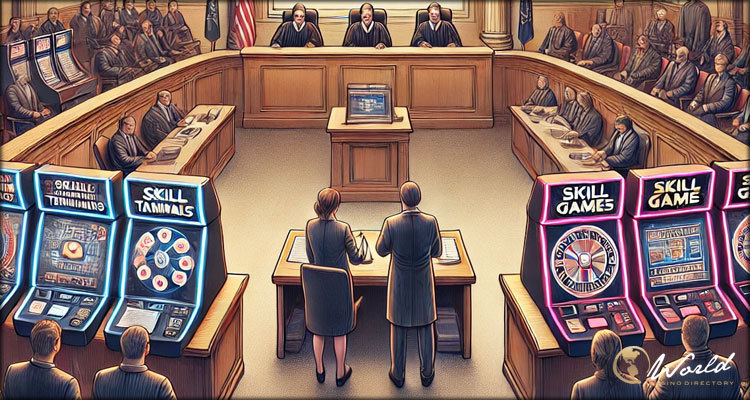
Pennsylvania’s highest court has taken up a crucial case to determine the legality of cash-paying electronic game terminals, commonly known as skill games, found in convenience stores, bars, and other establishments across the state. The Supreme Court’s decision to hear an appeal by the attorney general’s office follows a lower-court ruling that categorized these machines as games of skill rather than chance, challenging the state’s stance that they constitute unlicensed gambling.
Significance of the Supreme Court’s decision:
Legal experts and stakeholders view the Supreme Court’s involvement as pivotal, potentially establishing long-term regulatory standards for these contentious machines. Jeffrey Rosenthal, representing Parx Casino, emphasized the case’s importance in shaping future legal interpretations.
Pennsylvania’s courts and lawmakers have grappled with the legality of skill games for years, echoing similar legal battles in states like Texas, Virginia, and Kentucky. The outcome of this case holds implications not only for current operations but also for legislative discussions on taxing and regulating these devices amid ongoing budget negotiations.
Opposition to skill games comes from the Pennsylvania Lottery and the state’s casino industry, citing revenue losses due to the machines operating outside of regulated frameworks. Unlike casinos that face a 54% tax on slot machine revenue, skill games currently contribute nothing in taxes, raising concerns about fairness and economic impacts.
Estimates suggest Pennsylvania hosts over 67,000 skill game terminals, making it the state with the highest concentration nationwide. Attorney General Michelle Henry’s office highlighted the widespread deployment of these devices in various retail and hospitality settings, underscoring the need for clear legal guidelines.
Legal arguments and court perspectives:
As the Associated Press (AP) reports, the attorney general’s office contends that skill games contain hidden elements of chance despite their skill-based components, challenging traditional definitions of gambling devices under Pennsylvania law. The case involves detailed legal interpretations, including whether these machines qualify as electronic slot machines and the extent of their regulatory oversight.
Originating from a 2019 incident in Dauphin County, the case involves machines seized by state authorities from Champions Sports Bar. While a lower court ruled in favor of returning the machines and associated cash, the Commonwealth Court upheld this decision, prompting the attorney general’s appeal to the Supreme Court.
Legal representatives for establishments like Champions Bar argue that skill games are integral to the local business sector, particularly in post-pandemic recovery efforts. They emphasize the machines’ role as essential revenue streams and dispute claims of excessive chance elements in gameplay.
Pending bills in the state legislature seek to either regulate or ban skill games, reflecting ongoing public policy debates. The skill game industry urges lawmakers to institute regulatory frameworks to protect their operations from potential seizures and legal uncertainties.
As Pennsylvania’s Supreme Court prepares to deliberate on the legality of skill games, the outcome will shape the future landscape of electronic gaming in the state. The decision is eagerly anticipated by stakeholders across the legal, gaming, and legislative sectors, anticipating its broader implications on state revenues, consumer protections, and regulatory frameworks.
- SEO Powered Content & PR Distribution. Get Amplified Today.
- PlatoData.Network Vertical Generative Ai. Empower Yourself. Access Here.
- PlatoAiStream. Web3 Intelligence. Knowledge Amplified. Access Here.
- PlatoESG. Carbon, CleanTech, Energy, Environment, Solar, Waste Management. Access Here.
- PlatoHealth. Biotech and Clinical Trials Intelligence. Access Here.
- Source: https://news.worldcasinodirectory.com/pennsylvania-supreme-court-to-rule-on-legality-of-skill-based-gaming-terminals-113960



